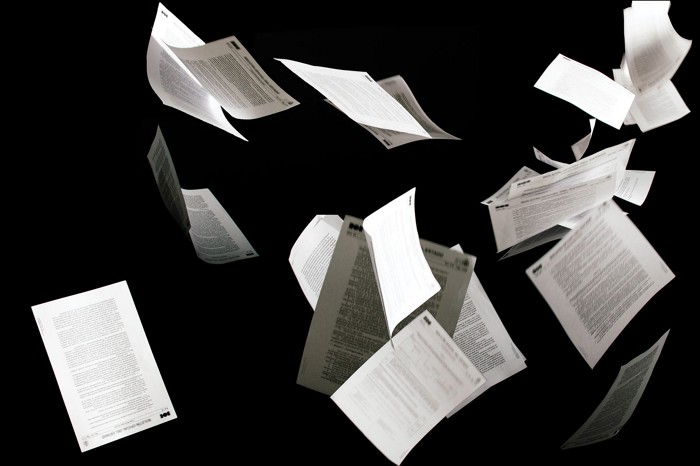Advertisement
Grab your lab coat. Let's get started
Welcome!
Welcome!
Create an account below to get 6 C&EN articles per month, receive newsletters and more - all free.
It seems this is your first time logging in online. Please enter the following information to continue.
As an ACS member you automatically get access to this site. All we need is few more details to create your reading experience.
Not you? Sign in with a different account.
Not you? Sign in with a different account.
ERROR 1
ERROR 1
ERROR 2
ERROR 2
ERROR 2
ERROR 2
ERROR 2
Password and Confirm password must match.
If you have an ACS member number, please enter it here so we can link this account to your membership. (optional)
ERROR 2
ACS values your privacy. By submitting your information, you are gaining access to C&EN and subscribing to our weekly newsletter. We use the information you provide to make your reading experience better, and we will never sell your data to third party members.
Publishing
Paper mill hits RSC journals
Chemistry publisher announces it is retracting around 70 scientific articles
by Laura Howes
January 25, 2021

The Royal Society of Chemistry (RSC) announced last week that it is retracting around 70 journal articles after identifying them as the product of so-called “paper mill” operations.
Paper mills are companies that churn out fake scientific papers for those willing to pay for the service. The RSC is the latest of several publishers to find this type of research fraud in its journals.
In a statement published Jan. 20, the RSC explains that it carried out an extensive investigation involving “independent image integrity and scientific experts” as well as consulting with other publishers who have experienced this problem. In follow-up correspondence with C&EN, the RSC says that it first became aware of a problem in 2019, but the full and “painstaking” investigation has taken a long time to complete.
“An alert on our submission system showed links between papers from different authors, so we started investigating a number of papers in late 2019. As we continued to investigate we learned more about the patterns and were able to link further papers of interest,” the RSC says.
In its Jan. 20 statement, the RSC says that many of the papers identified during its investigation “are written in very similar structures or templates, despite having no common authors. These papers often appear to be legitimate when viewed on their own, and many of the concerning features only come to light when comparing multiple papers.” The papers centered on biomedical topics, and many featured “instances of image duplication and manipulation,” the RSC says.
Jana Christopher, an image data integrity analyst, says there are tell-tale signs that can help publishers identify potentially fraudulent papers, but it’s not always easy. Christopher would not comment specifically on the RSC’s investigations because she provided advice and expertise as part of the process. Generally, she says, there may still be thousands of articles produced by paper mills in the published literature. “I think it’s potentially a huge problem, which has existed for some years,” she says, “it’s just that now that we see retractions, it’s becoming more visible.”
Christopher says paper mills may produce fabricated images, data or even entire papers before submitting them in a shotgun manner, sometimes even simultaneously to multiple journals. They may also reuse images from other papers, something that is difficult to spot unless you have both side by side. In her opinion, journals should ask for the raw data associated with the figures when the manuscript is submitted and make sure that data adhere to an expected standard. Last year, Christopher co-authored a paper discussing some of these steps with Jennifer Byrne from the University of Sydney (FEBS Lett. 2020, DOI: 10.1002/1873-3468.13747).
The RSC is working to improve its article-screening processes in light of the investigation findings. “We immediately implemented some additional manual checks as soon as we first became aware of the issue and, in order to embed these learnings, we’re working with our editors to equip them with the knowledge and tools to identify this evolving threat and protect the integrity of the scientific record,” it says. The RSC also says it will share its findings with other publishers.




Join the conversation
Contact the reporter
Submit a Letter to the Editor for publication
Engage with us on Twitter